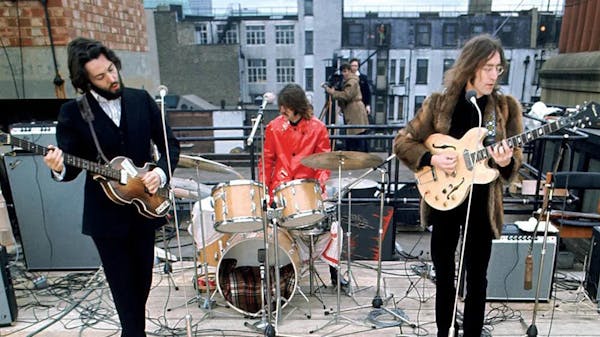TV viewers have accepted a talking horse, an alien from Ork and cops who always seem to emerge from shootouts without a scratch. But nothing was more incredulous than the spirit of "The Waltons."
From 1971 to 1981, audiences embraced a Depression-era family that acted as if it were as rich as the Ewings. It was just the kind of cockeyed optimism we needed at a time when various issues threatened to tear the country apart.
Sound familiar?
"The Waltons' Homecoming," a two-hour special airing 7 p.m. Sunday on WUCW, Ch. 23, hopes to provide the same antidote for these troubled times.
"When we came on, it was such a hard time, so much conflict, so much division, so much fear and cynicism. We were a comfort," said Richard Thomas who played John-Boy in the '70s version and serves as the new movie's narrator. "I think the time is right for it again."
In "Homecoming," the first original movie for the CW Network, the family eagerly awaits the return of John Sr., who manages to get Christmas off from his job many miles away. But a snowstorm threatens his journey home.
That drama takes a backseat to the little touches: The way the kids dash down the stairs when Mother calls, how taking a puff from one of Dad's cigarettes is a major act of rebellion, giggling along with the girls as they spy on John-Boy flirting with the local librarian, experiencing Mary Ellen's joy as Grandpa allows her to chop down the Christmas tree.
"Our world is coming out of such a lonely, lonely time," said Bellamy Young, who plays mother Olivia Walton, during a virtual news conference earlier this month. "The chance to put gentleness and kindness out into the world seemed so lovely."
The film also goes out of its way to ignore the period's racism, a strategy that may bother historians.
Olivia's best friend is a Black woman named Rose. The Waltons end up attending a Christmas service at her church without anyone batting an eye.
"I don't look at it as fantasy but maybe the way things should have been and in a lot of cases it was, but people just don't know about it," said executive producer Sam Haskell.
I had to set reality aside when I binge-watched original episodes during the darkest days of the pandemic. I was impressed by the attention to detail and the strong acting (Michael Learned and Ellen Corby would earn three Emmys each). I was soothed by the nostalgia trip — but embarrassed to tell anyone about it.
"When retrospectives are done, more often than not, the sitcoms get a lot more play," Thomas said. "It's sometimes hard to look at our good side. It's a lot more fun to enjoy the cynicism."
It's too early to tell if today's audience will accept anything as wholesome and inspirational as a "Waltons" reboot. Its closest cousin on network TV these days is "This Is Us," which seems to get darker and darker every week. But Haskell has faith.
"I've wanted this more than anything," said Haskell, who hopes the ratings justify either future movies or a new series. "I want people to be touched by it. I want them to love these characters again and remember why they loved them the first time around."
Judge in Trump case orders media not to report where potential jurors work
New attorney joins prosecution team against Alec Baldwin in fatal 'Rust' shooting
Booming cold drink sales mean more plastic waste. So Starbucks redesigned its cups

Allman Brothers Band co-founder and legendary guitarist Dickey Betts dies at 80

